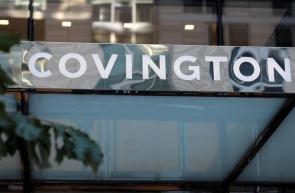Entering the legal profession is an exciting and rewarding journey, but one that requires dedication, hard work, and the ability to navigate the often-challenging interview process. To help you prepare for success in law firm interviews, we've compiled a comprehensive list of the top 50 questions you may encounter, along with guidelines for answering them effectively and common mistakes to avoid.

In this article, we'll explore questions related to your background, motivation, and goals, as well as those that delve into your understanding of the legal profession and your ability to work effectively in a demanding environment. By understanding the types of questions that may be asked and learning how to craft thoughtful, engaging responses, you'll be better equipped to showcase your unique qualities and experiences and make a strong impression on potential employers.
Whether you're a recent law school graduate or an experienced attorney seeking new opportunities, this guide is designed to help you navigate the interview process with confidence and secure the position you desire. So, read on, and let's get started on the path to a successful law firm interview.
- Have you made a decision about the city where you ultimately wish to work? Why have you selected this city?
Mistake: Being vague or unsure about your reasons, which can make you seem uncommitted or indecisive.
- Why did you accept an interview with us? What interests you most about our organization? What do you know about our firm/agency/company?
Mistake: Providing a generic answer or showing a lack of research, which can make you appear uninterested or unprepared.
- How would you describe yourself? Tell me about yourself.
Mistake: Providing too much personal information or giving a long, unfocused answer.
- What qualities do you have that will make you a successful lawyer? Why would someone with your personality traits and background be a good fit for our organization?
Mistake: Offering clichéd or generic qualities without concrete examples, which can make your answer unconvincing.
- What would you consider to be your greatest strengths? Greatest weaknesses? Why should I hire you?
Mistake: Failing to acknowledge any weaknesses or presenting a strength as a weakness, which can make you appear disingenuous.
- If I called your most recent employer, what three things would they say about you?
Mistake: Providing generic or unrealistic qualities, which can make you seem out of touch or untrustworthy.
- What two or three accomplishments have given you the most satisfaction? Are the most significant? Why? What did you learn most from a particular experience (on resume)?
Mistake: Focusing solely on personal achievements without connecting them to your legal career or the position you're applying for.
- What is the greatest obstacle that you have overcome in your life/career? What is the most difficult decision you have ever had to make?
Mistake: Providing a superficial or unrelated challenge, which can make your answer seem insincere or irrelevant.
- With what other kinds of employers are you interviewing? Do you have any pending job offers? If so, where?
Mistake: Giving the impression that you're not committed to the firm or that you're using the interview as a backup option.
- Is there anything I should know about you that we have not covered? Is there anything about yourself you want to add?
Mistake: Repeating information already covered or providing unrelated personal details.
- When are you available to begin working?
Mistake: Being vague about your start date or inflexible, which can make you seem uncooperative or uncommitted.
- Does your law school have journal publications? Why are you not a member of one?
Mistake: Dismissing the importance of journal membership or offering a weak excuse for not participating.
- What do you like to do outside of law school?
Mistake: Providing a list of activities without context or focusing only on law-related interests, which can make you seem one-dimensional.
- Do you plan to continue doing volunteer work once you are working full time?
Mistake: Being unrealistic about your ability to continue volunteering or dismissing the importance of community involvement.
- How do you balance school work and your part-time job?
Mistake: Failing to provide a clear strategy or suggesting that balancing work and school is not challenging.
- What persuaded you to become a lawyer? Why did you decide to go to law school/to your particular law school?
Mistake: Providing a clichéd or unconvincing reason for pursuing a legal career or choosing your law school.
- What areas of the law particularly interest you?
Mistake: Offering a generic answer or failing to demonstrate knowledge of the firm's practice areas.
- What is your basic career objective?
Mistake: Providing unrealistic or unrelated career objectives, which can make you seem unfocused or uncommitted to the firm.
- Where do you plan to be and what will you be doing five/ten years after graduation?
Mistake: Offering an unrelated or overly ambitious career plan, which can make you seem unrealistic or uncommitted.
- In what kinds of permanent employment are you interested? What are you looking for in a summer job?
Mistake: Providing a vague or unrelated answer, which can make you seem uncommitted or unsure of your career goals.
- How much significance do you think we should attach to your GPA and class rank? Please explain the grading system.
Mistake: Downplaying the importance of GPA and class rank or failing to provide context for your academic performance.
- Under what conditions do you work most effectively? Do you prefer to work independently or with others? How do you respond to guidance and supervision?
Mistake: Offering a one-sided answer that portrays you as inflexible or unable to work well in diverse settings.
- How will you pursue continuing legal education after you have been admitted to the bar?
Mistake: Failing to demonstrate a commitment to ongoing professional development or providing a vague answer.
- How do you think the legal profession is viewed by the public?
Mistake: Providing a one-sided or overly negative view of the profession, which can reflect poorly on your understanding of the field.
- How do you feel about a lawyer's right to advertise and to solicit clients?
Mistake: Providing an extreme or poorly supported view, which can reflect a lack of understanding of the nuances involved in this issue.
- What have you learned from participation on a publication or clinical program?
Mistake: Offering a vague or generic answer that fails to showcase your personal growth and development.
- If you graduated from law school, passed the bar, and had a year to do anything you wanted, what would you do?
Mistake: Providing an answer that lacks substance or does not convey any meaningful information about your personal interests or goals.
- How do you plan to develop your professional network?
Mistake: Failing to provide a clear plan for professional networking or suggesting that it is not a priority.
- How do you stay organized and manage your time effectively?
Mistake: Providing a vague or generic answer that fails to demonstrate your ability to manage a demanding workload.
- How do you handle stress and maintain work-life balance?
Mistake: Suggesting that you do not experience stress or downplaying the importance of work-life balance.
- What persuaded you to become a lawyer? Why did you decide to go to law school/to your particular law school?
Mistake: Providing a shallow or uninspired answer that lacks genuine enthusiasm for the legal field.
- What areas of the law particularly interest you?
Mistake: Offering a vague or overly broad answer that does not convey a genuine interest in any particular area of law.
- What is your basic career objective?
Mistake: Failing to provide a clear career objective or providing one that does not align with the firm's focus.
- Where do you plan to be and what will you be doing five/ten years after graduation?
Mistake: Providing an unrealistic or overly ambitious plan that may raise concerns about your ability to commit to the firm long-term.
- In what kinds of permanent employment are you interested? What are you looking for in a summer job?
Mistake: Failing to provide a clear answer or expressing interest in positions that do not align with the firm's offerings.
- How much significance do you think we should attach to your GPA and class rank? Please explain the grading system.
Mistake: Downplaying the importance of GPA and class rank or failing to provide context for your academic performance.
- Under what conditions do you work most effectively? Do you prefer to work independently or with others? How do you respond to guidance and supervision?
Mistake: Offering a one-sided answer that portrays you as inflexible or unable to work well in diverse settings.
- How will you pursue continuing legal education after you have been admitted to the bar?
Mistake: Failing to demonstrate a commitment to ongoing professional development or providing a vague answer.
- How do you think the legal profession is viewed by the public?
Mistake: Providing a one-sided or overly negative view of the profession, which can reflect poorly on your understanding of the field.
- How do you feel about a lawyer's right to advertise and to solicit clients?
Mistake: Providing an extreme or poorly supported view, which can reflect a lack of understanding of the nuances involved in this issue.
- What have you learned from participation on a publication or clinical program?
Mistake: Failing to provide concrete examples of what you have learned or not connecting your experiences to your legal career.
- If you graduated from law school, passed the bar, and had a year to do anything you wanted, what would you do?
Mistake: Providing a generic or uninteresting answer that fails to reveal any personal insight or enthusiasm for life beyond the legal field.
- What do you like to do outside of law school?
Mistake: Giving a generic or insincere answer that does not provide any insight into your personal life or interests.
- Do you plan to continue doing volunteer work once you are working full time?
Mistake: Providing a vague or insincere answer, which can raise doubts about your commitment to social responsibility.
- How do you balance school work and your part-time job?
Mistake: Providing an unclear or unconvincing explanation that raises concerns about your ability to manage competing demands in a professional setting.
- What areas of law do you find most challenging and why?
Mistake: Avoiding the question or claiming that no area of law is challenging for you, which can come across as arrogant or untruthful.
- How would you handle a difficult client?
Mistake: Providing a vague or overly simplistic answer that does not demonstrate your problem-solving and interpersonal skills.
- How do you stay organized and manage your workload?
Mistake: Failing to provide concrete examples of your organizational skills or providing an unconvincing explanation of your approach to workload management.
- What do you think sets you apart from other candidates?
Mistake: Focusing only on generic qualities or being overly boastful, which can come across as insincere or arrogant.
- How do you handle stress and maintain a work-life balance?
Mistake: Failing to acknowledge the importance of work-life balance or suggesting that stress does not affect you, which can come across as unrealistic or unprepared for the demands of a legal career.
Conclusion:
The law firm interview process can be challenging, but with the right preparation and understanding of the top 50 questions and their guidelines, you can excel and make a lasting impression on potential employers. By considering each question thoughtfully, avoiding common mistakes, and showcasing your unique experiences and qualities, you'll be well on your way to securing the legal position you desire.
Remember that the key to a successful interview lies in thorough preparation, effective communication, and the ability to demonstrate your passion for the legal profession. As you continue on your career journey, use the insights gained from this article to help you navigate the interview process with confidence and poise. Ultimately, your dedication, hard work, and commitment to the legal field will pay off, leading you to the fulfilling and rewarding career you've always envisioned.
About Harrison Barnes
Harrison Barnes is a prominent figure in the legal placement industry, known for his expertise in attorney placements and his extensive knowledge of the legal profession.
With over 25 years of experience, he has established himself as a leading voice in the field and has helped thousands of lawyers and law students find their ideal career paths.
Barnes is a former federal law clerk and associate at Quinn Emanuel and a graduate of the University of Chicago College and the University of Virginia Law School. He was a Rhodes Scholar Finalist at the University of Chicago and a member of the University of Virginia Law Review. Early in his legal career, he enrolled in Stanford Business School but dropped out because he missed legal recruiting too much.
Barnes' approach to the legal industry is rooted in his commitment to helping lawyers achieve their full potential. He believes that the key to success in the legal profession is to be proactive, persistent, and disciplined in one's approach to work and life. He encourages lawyers to take ownership of their careers and to focus on developing their skills and expertise in a way that aligns with their passions and interests.
One of how Barnes provides support to lawyers is through his writing. On his blog, HarrisonBarnes.com, and BCGSearch.com, he regularly shares his insights and advice on a range of topics related to the legal profession. Through his writing, he aims to empower lawyers to control their careers and make informed decisions about their professional development.
One of Barnes's fundamental philosophies in his writing is the importance of networking. He believes that networking is a critical component of career success and that it is essential for lawyers to establish relationships with others in their field. He encourages lawyers to attend events, join organizations, and connect with others in the legal community to build their professional networks.
Another central theme in Barnes' writing is the importance of personal and professional development. He believes that lawyers should continuously strive to improve themselves and develop their skills to succeed in their careers. He encourages lawyers to pursue ongoing education and training actively, read widely, and seek new opportunities for growth and development.
In addition to his work in the legal industry, Barnes is also a fitness and lifestyle enthusiast. He sees fitness and wellness as integral to his personal and professional development and encourages others to adopt a similar mindset. He starts his day at 4:00 am and dedicates several daily hours to running, weightlifting, and pursuing spiritual disciplines.
Finally, Barnes is a strong advocate for community service and giving back. He volunteers for the University of Chicago, where he is the former area chair of Los Angeles for the University of Chicago Admissions Office. He also serves as the President of the Young Presidents Organization's Century City Los Angeles Chapter, where he works to support and connect young business leaders.
In conclusion, Harrison Barnes is a visionary legal industry leader committed to helping lawyers achieve their full potential. Through his work at BCG Attorney Search, writing, and community involvement, he empowers lawyers to take control of their careers, develop their skills continuously, and lead fulfilling and successful lives. His philosophy of being proactive, persistent, and disciplined, combined with his focus on personal and professional development, makes him a valuable resource for anyone looking to succeed in the legal profession.
About BCG Attorney Search
BCG Attorney Search matches attorneys and law firms with unparalleled expertise and drive, while achieving results. Known globally for its success in locating and placing attorneys in law firms of all sizes, BCG Attorney Search has placed thousands of attorneys in law firms in thousands of different law firms around the country. Unlike other legal placement firms, BCG Attorney Search brings massive resources of over 150 employees to its placement efforts locating positions and opportunities its competitors simply cannot. Every legal recruiter at BCG Attorney Search is a former successful attorney who attended a top law school, worked in top law firms and brought massive drive and commitment to their work. BCG Attorney Search legal recruiters take your legal career seriously and understand attorneys. For more information, please visit www.BCGSearch.com.
Harrison Barnes does a weekly free webinar with live Q&A for attorneys and law students each Wednesday at 10:00 am PST. You can attend anonymously and ask questions about your career, this article, or any other legal career-related topics. You can sign up for the weekly webinar here: Register on Zoom
Harrison also does a weekly free webinar with live Q&A for law firms, companies, and others who hire attorneys each Wednesday at 10:00 am PST. You can sign up for the weekly webinar here: Register on Zoom
You can browse a list of past webinars here: Webinar Replays
You can also listen to Harrison Barnes Podcasts here: Attorney Career Advice Podcasts
You can also read Harrison Barnes' articles and books here: Harrison's Perspectives
Harrison Barnes is the legal profession's mentor and may be the only person in your legal career who will tell you why you are not reaching your full potential and what you really need to do to grow as an attorney--regardless of how much it hurts. If you prefer truth to stagnation, growth to comfort, and actionable ideas instead of fluffy concepts, you and Harrison will get along just fine. If, however, you want to stay where you are, talk about your past successes, and feel comfortable, Harrison is not for you.
Truly great mentors are like parents, doctors, therapists, spiritual figures, and others because in order to help you they need to expose you to pain and expose your weaknesses. But suppose you act on the advice and pain created by a mentor. In that case, you will become better: a better attorney, better employees, a better boss, know where you are going, and appreciate where you have been--you will hopefully also become a happier and better person. As you learn from Harrison, he hopes he will become your mentor.
To read more career and life advice articles visit Harrison's personal blog.





